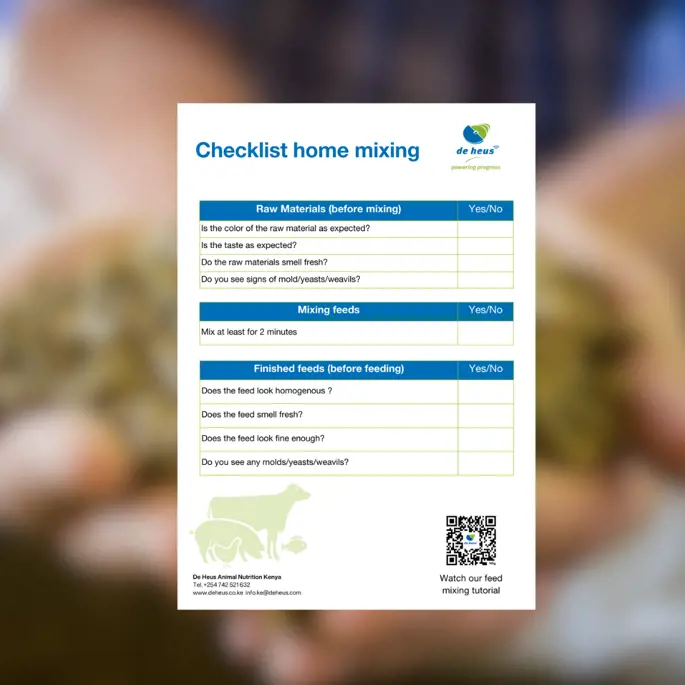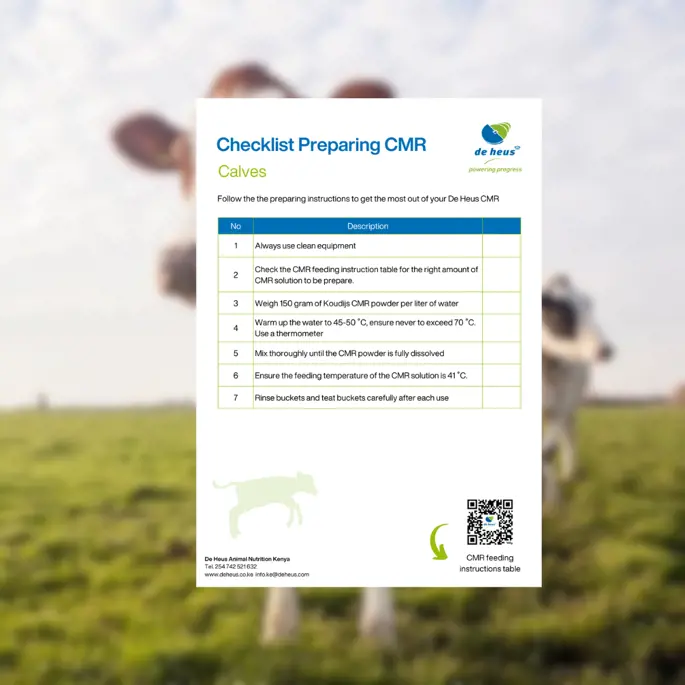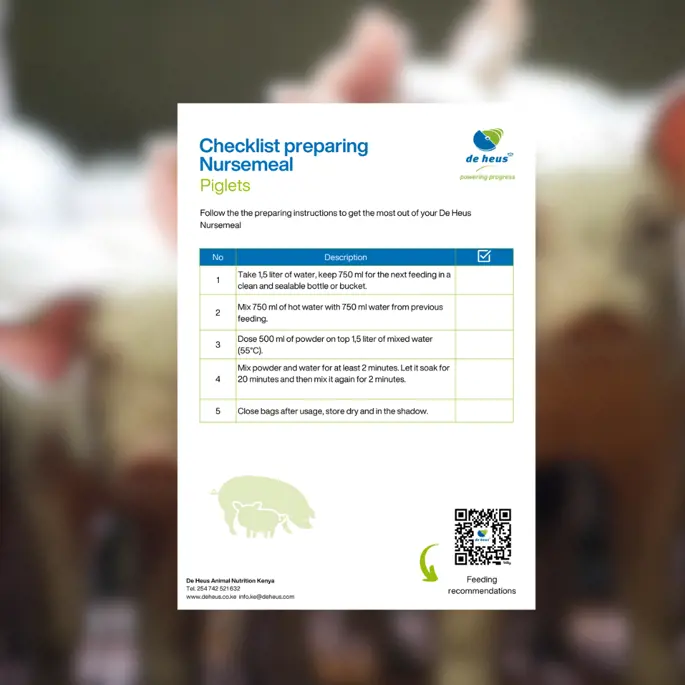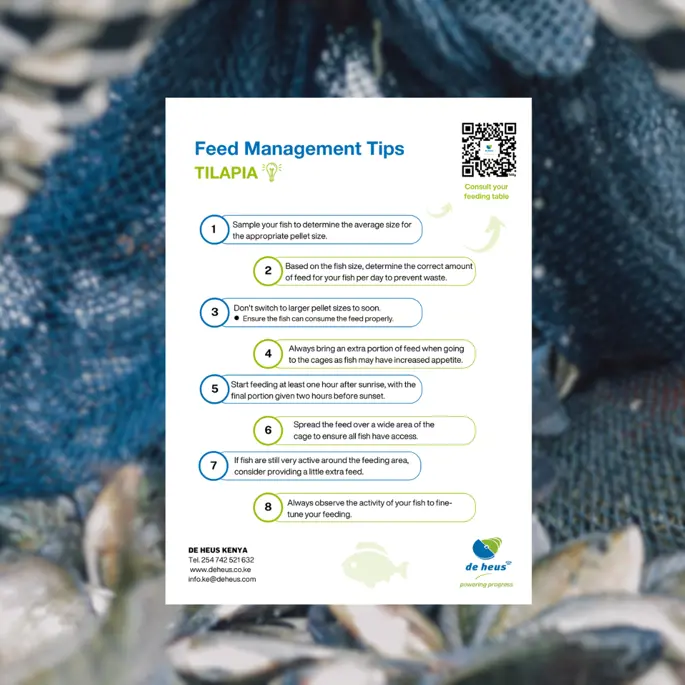Nutrition
Just like we need nutritious food to stay healthy and strong, your animals need the right feed to grow well and produce more. Whether you raise cows, chickens, goats, or other livestock, good nutrition is the key to a successful farm. Think of animal feed as the fuel that powers your farm's engine. The better the fuel, the better the performance. At De Heus, we're not just experts in animal nutrition; we're passionate about helping you understand how to give your animals the best possible diet.



Give your animals the nutrition they need to thrive!
Your animals are your biggest asset., they need the right food to stay healthy, grow strong, and produce more. Whether you're raising cows, chickens, or goats, proper nutrition is key to a successful farm.
Did you know that different animals need different types of feed? Just like a balanced diet is important for humans, animals also need the right mix of nutrients to thrive. Providing the correct feed ensures your animals get the energy, protein, vitamins, and minerals they need for optimal growth, reproduction, and production.
Feed quality
Not all animal feed is created equal. High-quality feed contains the right balance of nutrients, is free from contaminants, and is palatable to your animals. Investing in good quality feed can lead to better animal health, reduced disease risk, and improved feed efficiency, saving you money in the long run.

Feeding management
Feeding your animals the right way can reduce waste and save you money. Proper feed storage prevents spoilage and maintains nutritional value. Knowing how much to feed your animals and when to feed them ensures they get the right amount of nutrients without overfeeding or underfeeding, optimizing feed efficiency and reducing costs.
Ration balancing
It's not just about the type of feed, but also about the right mix. By balancing your animal's rations, you can ensure they receive the correct proportions of nutrients, avoiding deficiencies or excesses that can hinder their performance. A balanced diet leads to healthier animals, improved weight gain, increased milk or egg production, and ultimately, higher profits.







